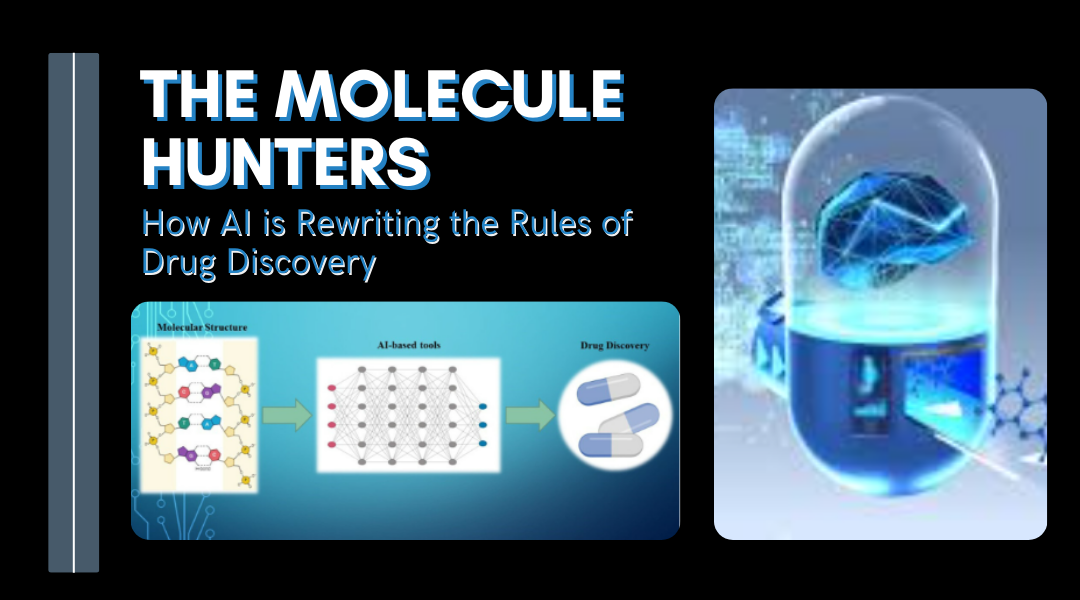The Needle in a Chemical Haystack
Finding a new medicine isn’t just hard—it’s like searching for one specific grain of sand on all the beaches of the world. For decades, scientists have brute-forced their way through this problem, testing thousands of compounds in painstaking lab experiments that cost millions and take years. Most lead nowhere.
But something remarkable is happening. In labs from Oxford to San Francisco, researchers are handing this impossible task to artificial intelligence—and the machines are delivering breakthroughs that defy traditional timelines.
Why the Old Way is Broken
Let’s be honest: traditional drug screening is archaic.
- The numbers don’t lie: There are more potential drug molecules than atoms in the solar system. Testing them manually? A fool’s errand.
- The failure tax: Pharma companies burn through $2 billion per approved medicine because 90% of candidates fail.
- The speed trap: By the time a promising molecule clears all the hurdles, patients have been waiting a decade.
How AI Changes the Game
- The Digital Chemist
AI systems like DeepMind’s AlphaFold don’t just analyze molecules—they dream up new ones. Last year, an AI in Zurich designed a potential antiviral molecule in under a month that human researchers said would’ve taken years. It’s now in preclinical testing. - Failure is (Virtually) Free
Instead of wasting months and millions on dead-end compounds, AI runs thousands of digital experiments overnight. “We fail fast and cheap,” says Dr. Sarah Chen at Recursion Pharma. “By morning, we know which 10 molecules are worth real lab time.” - Resurrecting Ghost Drugs
AI is scouring pharma’s graveyard of abandoned compounds. That shelved blood pressure medicine from 2002? An AI flagged it as a potential Parkinson’s treatment last quarter. Human researchers had missed the connection for 20 years.
Real-World Wins
- Cancer: Exscientia’s AI-designed cancer drug(medication) entered trials in 12 months instead of the usual 4-5 years
- Rare Diseases: Atomwise found 5 promising candidates for a deadly childhood genetic disorder in weeks—a search that had stalled for a decade
- Antibiotics: MIT’s AI recently discovered a powerful new antibiotic hiding in plain sight in existing drug libraries
The Catch (Because There’s Always a Catch)
- Garbage In, Garbage Out: AI needs pristine data. One flawed study in the training set can derail everything.
- The Black Box Problem: When an AI says “this molecule will work,” but can’t explain why, do we trust it?
- The Haves vs Have-Nots: Cutting-edge AI tools cost millions. Will this leave small biotechs and developing nations behind?
The Human Factor
The smartest labs aren’t replacing chemists—they’re arming them with AI superpowers. At Genentech, teams use AI as a “co-pilot,” generating hundreds of molecular designs that human scientists then refine. “The AI proposes, we dispose,” laughs lead researcher Mark Henderson.
What’s Next?
We’re entering the era of:
- Instant generics: AI could design workarounds for patented medication in days
- Personalized molecules: Drugs tailored to your unique biology
- AI pharma startups: Companies with no wet labs, just algorithms and cloud servers
The Bottom Line
This isn’t just about faster medication discovery—it’s about discovering drugs we’d never find otherwise. As one veteran chemist told me: “After 30 years in the lab, I never imagined I’d take design cues from a machine. But when it works? Damn if it doesn’t feel like magic.”
The revolution won’t happen overnight. But for patients waiting on miracles, AI might just be the closest thing we’ve got to a time machine.
